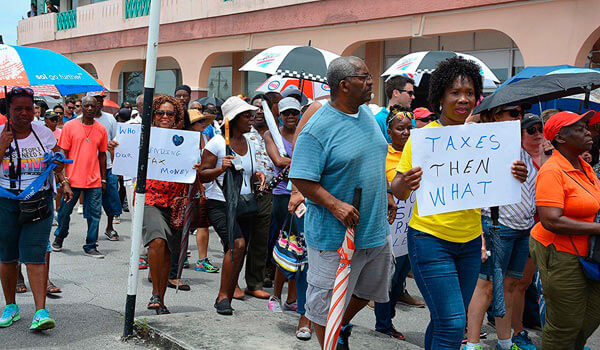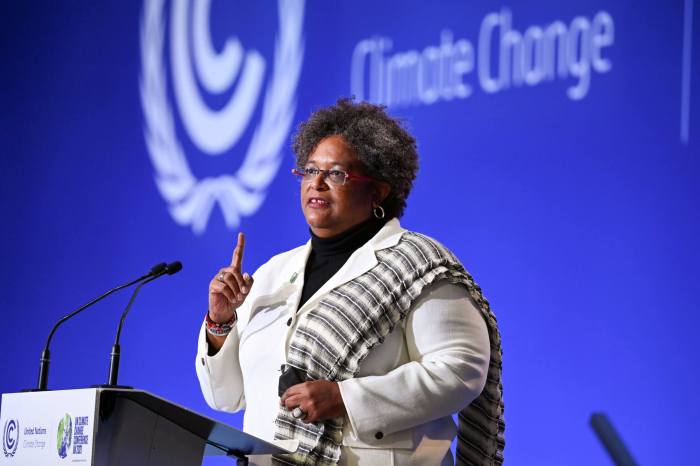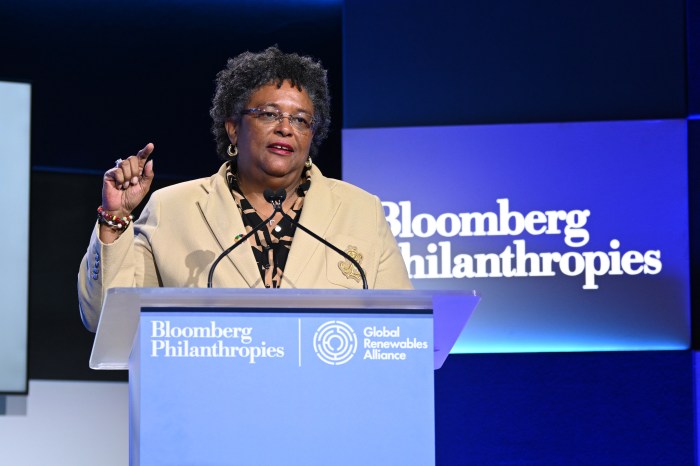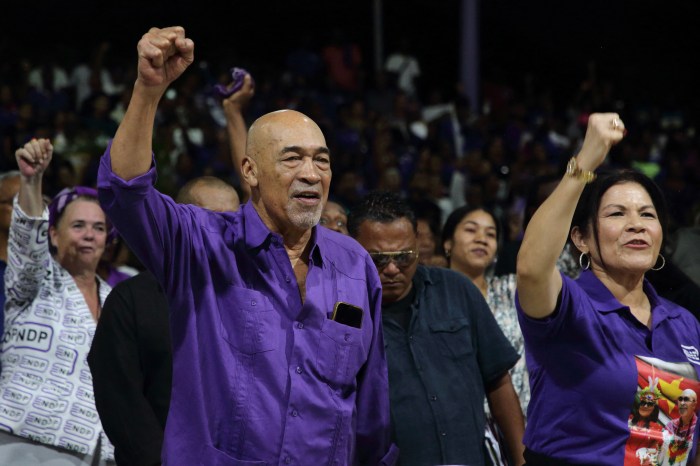The government of Barbados appears to be softening its stance and opening the door for early talks with unions and the private sector following a protest march by those groups demanding a tax reduction or repeal.
After a series of go-slows and sick-outs because the Prime Minister Freundel Stuart administration refused to agree to further talks about their demands on changes to a jacked up import tax, the island’s four most powerful trade unions teamed up with the private sector to bring out some 20,000 workers and bosses for a morning protest march Monday.
The main demand of marchers centered on the National Social Responsibility Levy that government on July 01 moved up from being a two percent tax to a 10 percent charge on all imports.
Barbados imports more than 70 percent of its goods and inputs for services and in fear that this 400 percentage points increase in taxation on almost all items brought into the island would spike inflation and make the cost of living unbearable, the unions had a week and a half ago delivered to the prime minister a letter requesting urgent talks on the Levy’s reduction or repeal.
Aug. 18 was a date set earlier this year for routine meetings of unions, the private sector and government in a tripartite arrangement known as the Social Partnership that discusses matters and polices of national interest, but labor representatives stated that the matter of the jacked up tax was too urgent to wait for talks mid next month.
A non-response from Stuart resulted in mild industrial action last week that was stepped up to Monday’s mass protest.
On Tuesday government however showed its first sign of buckling under pressure of the numbers of those who marched representing a sixth of the island’s total estimated workforce when Tourism Minister Richard Sealy said, “we will probably have to call those meetings before that [Aug. 18] and we can work our way through this difficult period to see that in the end Barbados and Barbadians ultimately benefit.”
The tourism minister’s statement was made in Parliament where the Opposition Barbados Labour Party had brought a motion asking that government resolves to meet the unions and the private sector representatives to stave off a further worsening of the industrial climate.
That parliamentary motion was brought against a backdrop of union leaders telling the marching multitude that they will await government’s reaction to the show of force before deciding on the next step in the push for workers’ relief from the increased tax.
“We were talking to the prime minister from the 23rd of June, we wrote the prime minister on the 6th of July, we wrote again on the 11th of July and today we are still calling for meaningful dialogue,” Barbados Workers Union General Secretary Toni Moore said after the march.
President of the National Union of Public Workers Akanni McDowall followed up by saying, “Government has to be willing to meet with the partners. The unions have a responsibility to make sure that we address the concerns of the workers of this country.
“If the workers of this country are uncomfortable, we have to make sure that we make them comfortable and we are willing to do whatever to make them comfortable.”























